
A CONVERSATION WITH TV AND COMIC BOOK WRITER,
JAVIER GRILLO-MARXAUCH
PART ONE
Prof. Challenger/Keith Howell (PROF): He shouldn’t need an introduction, but he probably does. Most of you know Javier Grillo-Marxuach’s work whether you realize it or not. If you have been a viewer of the TV shows CHARMED and JAKE 2.0, then you’ve encountered his cleverly well-written scripts. If you are a fan of LOST, you have been treated to his Emmy Award-winning wicked sense of drama on that series and humor as a member of the writing staff (he wrote the infamous “Charlie gets strung up” episode for example) and a supervising producer. Last year he branched out to add “comic book writer” to his ever-expanding resume of accomplishments when his Viper Comics mini-series THE MIDDLEMAN was selling out all over the country. PART ONE
 Currently on the stands he has the first issue of THE MIDDLEMAN VOL. 2: THE ENTERING DRAGON CONUNDRUM, THE MIDDLEMAN: THE TRADE PAPERBACK INITIATE (collecting the original mini-series along with some insight into how the project came about and a pin-up gallery), and upcoming is his SUPER-SKRULL mini-series for Marvel Comics. Besides being one of the hardest-working men in showbiz, he’s also one of the funniest and nicest people you’ll ever meet. So, without further ado, I give you Javier Grillo-Marxuach!
Currently on the stands he has the first issue of THE MIDDLEMAN VOL. 2: THE ENTERING DRAGON CONUNDRUM, THE MIDDLEMAN: THE TRADE PAPERBACK INITIATE (collecting the original mini-series along with some insight into how the project came about and a pin-up gallery), and upcoming is his SUPER-SKRULL mini-series for Marvel Comics. Besides being one of the hardest-working men in showbiz, he’s also one of the funniest and nicest people you’ll ever meet. So, without further ado, I give you Javier Grillo-Marxuach!
*thunderous applause*
Javier Grillo-Marxuach (JGM): By the way, thank you so much for regaling "THE MIDDLEMAN" with an @$$ie!
PROF: Not a problem. But I'll tell you something...I think our newest reviewer Dan is an even bigger fan of the thing. But since he mainly reviews Manga, he hasn't yet promoted it in the column.
JGM: I guess we will have to put out a Manga MIDDLEMAN then!
PROF: He would DIG that!
First official question: Who is Javier Grillo-Marxuach and why does he do what he does? Or in other words, what does the future obituary of the late great Javier Grillo-Marxuach look like?
JGM: My future obituary... following the titanic failure of his attempt to thin the herd of humanity by spreading a poison made from rare Amazonian orchids through satellites launched from his privately owned fleet of space shuttles... No, wait, that's Hugo Drax's obituary...
PROF: * laughter*
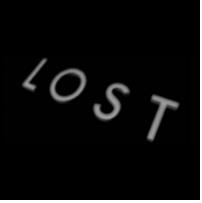 JGM: The funny thing is, when LOST won the Emmy, one of my compatriots turned to me and declared that "the first line of your obituary was just written."
JGM: The funny thing is, when LOST won the Emmy, one of my compatriots turned to me and declared that "the first line of your obituary was just written."
PROF: You know, that's probably true. Word on your website is that you and LOST are parting ways. Anything you want to say here about that?
JGM: Only that it's all amicable. In the days after I posted the announcement to my blog, a fair number of people who follow this type of thing speculated about what intrigue might have provoked my parting of the ways with the show, but the truth is what I wrote is both factual and heartfelt. It's been an amazing two years, and now we all agree it's time to move on…
PROF: ….because....you've got so much best-selling comic book work that LOST became a hindrance to you.
JGM: Well, I didn't want to be the one to say it but...I do feel that poor little LOST often gets buried in the avalanche of interest for THE MIDDLEMAN.
PROF: Before we move on to comics...and since you're leaving the show....surely you can tell ME....what REALLY will happen if Locke or Jack forget to push that button every 3 hours?
JGM: Three words...
Busby…
Berkeley…
Number!
PROF: yeh… with Hurley in the middle…
JGM: I'm telling you - it would be a terrible thing!
PROF: …in a tutu
JGM: DUDE!
PROF: Tell me where you grew up.
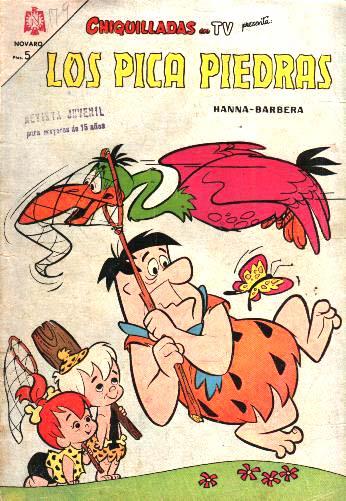 JGM: I was born in San Juan, Puerto Rico - but my family moved to Ann Arbor, Michigan when I was ten.
JGM: I was born in San Juan, Puerto Rico - but my family moved to Ann Arbor, Michigan when I was ten.
PROF: So, the move to Michigan would be about when? Mid-70s?
JGM: 1980 actually - I'm younger than I look!
PROF: Younger than me at least. :) But it still puts you in that time period where your formative TV years would've been stuff like SIX MILLION DOLLAR MAN, PLANET OF THE APES, MAN FROM U.N.C.L.E., I SPY, etc.
JGM: My formative TV experiences are definitely all of those great 1970's/80's shows - although I watched most of them in Spanish at first. I am one of the few DOCTOR WHO fans I know who never heard Tom Baker's real voice until much later in life! The one thing I always found amusing was how the translation never matched the title...like during DOCTOR WHO the Spanish announcer would say "EL DOCTOR MISTERIO!" when the title card came on!
Even at that young age, I remember thinking "that doesn't match."
I remember Fred Flintstone was called "Pedro Picapiedra" and Barney was "Pablo Marmol" which, again, translate to "Peter Stonecutter" and "Paul Marble."
I was a very confused young man when we came to America.
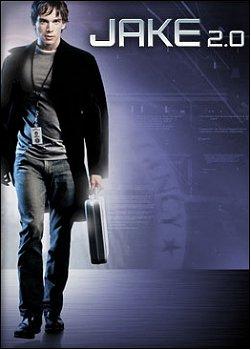 I met Lee Majors a few years ago - we used him on "JAKE 2.0" - And I told him about seeing his show in Spanish and he said: "Yes, whenever I travel to Latin America, they call me El Hombre Nuclear." Best day of my life!
I met Lee Majors a few years ago - we used him on "JAKE 2.0" - And I told him about seeing his show in Spanish and he said: "Yes, whenever I travel to Latin America, they call me El Hombre Nuclear." Best day of my life!
PROF: In the early to mid-70s my dad was stationed on Ramey Air Force Base in Aquadilla, Puerto Rico, so I can kind of relate to that.
JGM: So, did you have to get the Spanish-language reprints of comics or could you get the real deal at the base?
PROF: I had to ride my bike off base to get to this “everything” shop that carried some comics. Most of 'em were regular English books, but they did include Spanish SUPERMAN reprints. The thing that always stuck out to me as a kid was how Superman was recolored with brown skin in those. In an odd sort of way, I kind of preferred the "tan" Superman look. But they all came in inconsistently, which meant that multi-part stories many times were in my hands without part 2 or even the conclusion. Also, very few Marvels. Pretty much only SPIDER-MAN and MARVEL TALES (reprinting SPIDER-MAN) and the rest were DC.
JGM: I remember most of the books I read being DC as well - I wonder if Marvel wasn't as heavily licensed back then.
PROF: That's probably it. My whole Marvel background until about 1977 was the Marvel Cartoon show that was aired on Sunday mornings around 11 am. If we got home from church in time, I was a happy kid. It was also still in English, which was bonus.
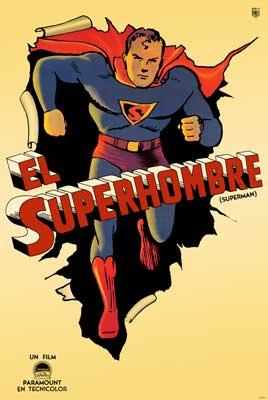
JGM: It was always better seeing things in the original language - it was always clear that the dubbing was bogus.
PROF: But back to YOU. Were you a collector or just an occasional reader?
JGM: Well, as a kid, unless you have a parent who's a comic collector, you're pretty much a casual reader. I remember having a lot of Spanish-language comics as a kid, and then, around the age of ten all my comics were replaced by STARLOGS, CINEFEX and FANTASTIC FILMS magazines... it wasn't until I hit high school that I started reading comics again because I started running with that kind of crowd, and we were old enough to make the pilgrimage to the local comic book store.
PROF: Which for most kids in the country at that time meant driving out of town...
JGM: Yep - but I was lucky because Ann Arbor had a very safe University Bus system that all the kids rode on, so getting to the one comic book store in town was never a problem. Growing up in a college town was pretty awesome. I basically read whatever my friends were buying because - hey - they are buying it! What I remember best about that time was reading THE DARK KNIGHT as it was coming out, as well as THE WATCHMEN. I also vividly remember the day my friend John bought this weird little Indy black-and-white book called "TEENAGE MUTANT NINJA TURTLES.”
Honestly though, I was a dyed-in-the-wool Superman/Batman kid - as much because those were the comics around when I was younger as well as because of the Donner movie and the Adam West TV show. I loved those characters in movies and TV, so whenever I got comics, that's what I would seek out.
PROF: I'm right there with you, though I was starting college at that time. What brought your family to Ann Arbor?
…and don't say "a plane."
JGM: My father is an oncologist hematologist who went from private practice into cancer research; he went to work at a company headquartered there.
PROF: …big words make Hulk head hurt...
JGM: I bet you wish I had said “a plane!”
PROF: "Smiles everyone. Smiles."
JGM: *laughs* It's funny you should mention that - one of my favorite shows of the late 70's!
PROF: So tell me this...are you one of those guys who ALWAYS knew he was going to be a writer or did it come to you later when you realized "Hey! I can do this better than other people?”
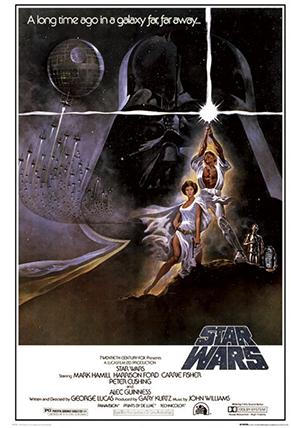 JGM: Always... I know it's a big cliche, but I remember two movies – STAR WARS and SUPERMAN - literally making me say "I want to do THAT."
I pretty much always knew after that.
JGM: Always... I know it's a big cliche, but I remember two movies – STAR WARS and SUPERMAN - literally making me say "I want to do THAT."
I pretty much always knew after that.
PROF: What was your pathway to becoming a professional writer? A lot of people "write;” few become professionals. Though in LA, it probably doesn't feel like that.
JGM: After STAR WARS came out, I pretty much dedicated my little seven year-old brain to learning everything I could about how that movie happened. It was such a deviation from anything I had ever seen before... eventually, as I got older, I realized that there was such a thing as "Film School" and George Lucas had gone to it. That gave me an immediate goal, and I pretty much focused on that for the rest of my life. I had no idea that going to film school is in no way a guarantee of success, it was just one of those things where you realize - "that’s the path, it's laid out for me, let me go NOW!"
PROF: Which film school?
JGM: University of Southern California - although I did undergrad in Creative Writing at Carnegie Mellon in Pittsburgh. One of the many intermediary steps I took was to write and direct plays - which was the easiest way to get stuff up on its feet in the pre-video, pre-Imovie era, that got me a lot of attention and the good folk at Carnegie were kind enough to offer me a scholarship...
PROF: Excellent way to get in there and fully understand the entire creative process involved in an actor's medium.
JGM: At that age it might also have just been all about "LOOK AT ME! LOOK AT ME! I HAVE SOMETHING TO SAY!" but, you're absolutely right - it was also a huge first step in terms of beginning to understand writing as process and craft as opposed to something that you just spewed out.
PROF: One of the things about your writing that stands out is your dialogue. Your characters each have clearly identifiable and idiosyncratic ways of speaking that distinguish them from each other. Do you find yourself out in public sometimes just sitting back and listening to people as they interact then downloading that into your brain to latch onto later?
JGM: First of all, thank you very much for saying that, I truly appreciate it. I think that it comes as much from looking at how the words flow on the page as it does from listening to how people talk. All dialogue in movies, comics and TV is artificial, it represents a conscious attempt on the part of the writer to put out an idealized representation of how people communicate - for me, it mostly starts out from understanding that and then saying, how do we present that communication in a way that shows the individual flow of that character's thoughts.
PROF: You've seen DEADWOOD right?......
JGM: The first few episodes, yes. Talk about a stylized representation of the way people talk! But it works because it isn't haphazard - everyone involved commits to it on every level.
PROF: That truly is a "writer's" show (follow me on this)…You can pull back away from the performances and just listen to the words and it's like a filthy, linguistic, classical piece of music … all dialogue-based.
JGM: Absolutely. I was just watching the 30th anniversary DVD of NETWORK and it's the same thing - the dialogue there bears little resemblance to reality, but it becomes accepted reality because it's so convincingly portrayed as the reality of that world.
 PROF: Great point. On the DEADWOOD DVD they had an "extra" that showed the creator, David Milch, writing the series and he wasn't actually "writing" it so much as "riffing" the script improvisationally and using a computer program to record and type it out for him. Fascinating to watch.
PROF: Great point. On the DEADWOOD DVD they had an "extra" that showed the creator, David Milch, writing the series and he wasn't actually "writing" it so much as "riffing" the script improvisationally and using a computer program to record and type it out for him. Fascinating to watch.
As a working writer, is that similar to what goes on in your own head?
JGM: I don't think I could work the way Milch does in terms of dictating dialogue - nor would I compare anything I do to Milch or Chayefsky (author of NETWORK) for all the obvious reasons - but for me it's all about how it LOOKS on the page, and that is especially true of my comics work. I may lay the stylization on a little less thickly in my TV work where I am usually working with other people's characters, but in THE MIDDLEMAN it's all about whether or not the combination of words on the page "sounds" like Wendy. If that makes any sense.
Dialogue is one of the most distinct signatures of a writer's style. When I looked at ULTIMATE HULK VS. WOLVERINE I knew exactly who wrote that book - not just because I have been working with Damon Lindelof for two years now, but also because he has such a strong, clear voice.
PROF: …as distinct as artistic drawing style.
JGM: Absolutely - you could imagine Damon's Wolverine sitting at a bar knocking back a few cold ones with Sawyer!
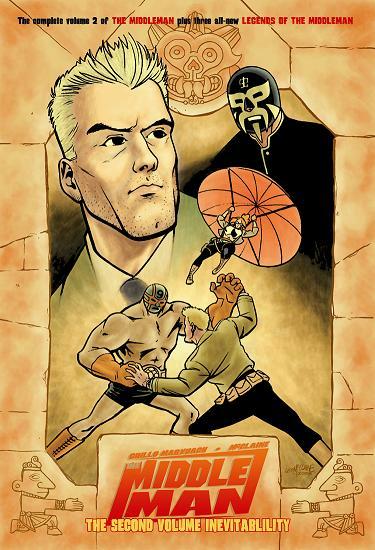
PROF: *laughter* Let me ask you this. Do you ever write something, look at it on the page and think "This doesn't sound like my writing?" Not that it's bad, just for whatever reason, your voice disappears?
JGM: Yep - it's something that happens very frequently in television - you are hired to execute another person's vision until you are entrusted to create your own. If you are doing the job right, looking at the dialogue and saying "that doesn't sound like me" is a daily occurrence. Also, writing a character like - and forgive the egregious self-promotion - Super-Skrull, he is going to sound a lot different than, say, Wendy Watson (from THE MIDDLEMAN). A lot of the time when I look at the script for that book I think that while they have a lot of me in them, the way the characters speak and so on doesn't sound like stuff I have already done - because I have never written for a race of green-skinned, pointy-eared, lantern-jawed shape shifters before!
PROF: Is the "execution" of "another person's vision" frustrating for a creative writer?
JGM: It can be - and I'd be lying to you if I told you that I am always able to bury my own idiosyncrasies... ...it's hard to not want to write things your own way, but that's the discipline - if you don't want to do that, then TV may not be your medium!
PROF: Maybe COMIC BOOKS is your medium!
JGM: I gotta be honest; I am having more fun with THE MIDDLEMAN than with almost anything else I have ever done!
